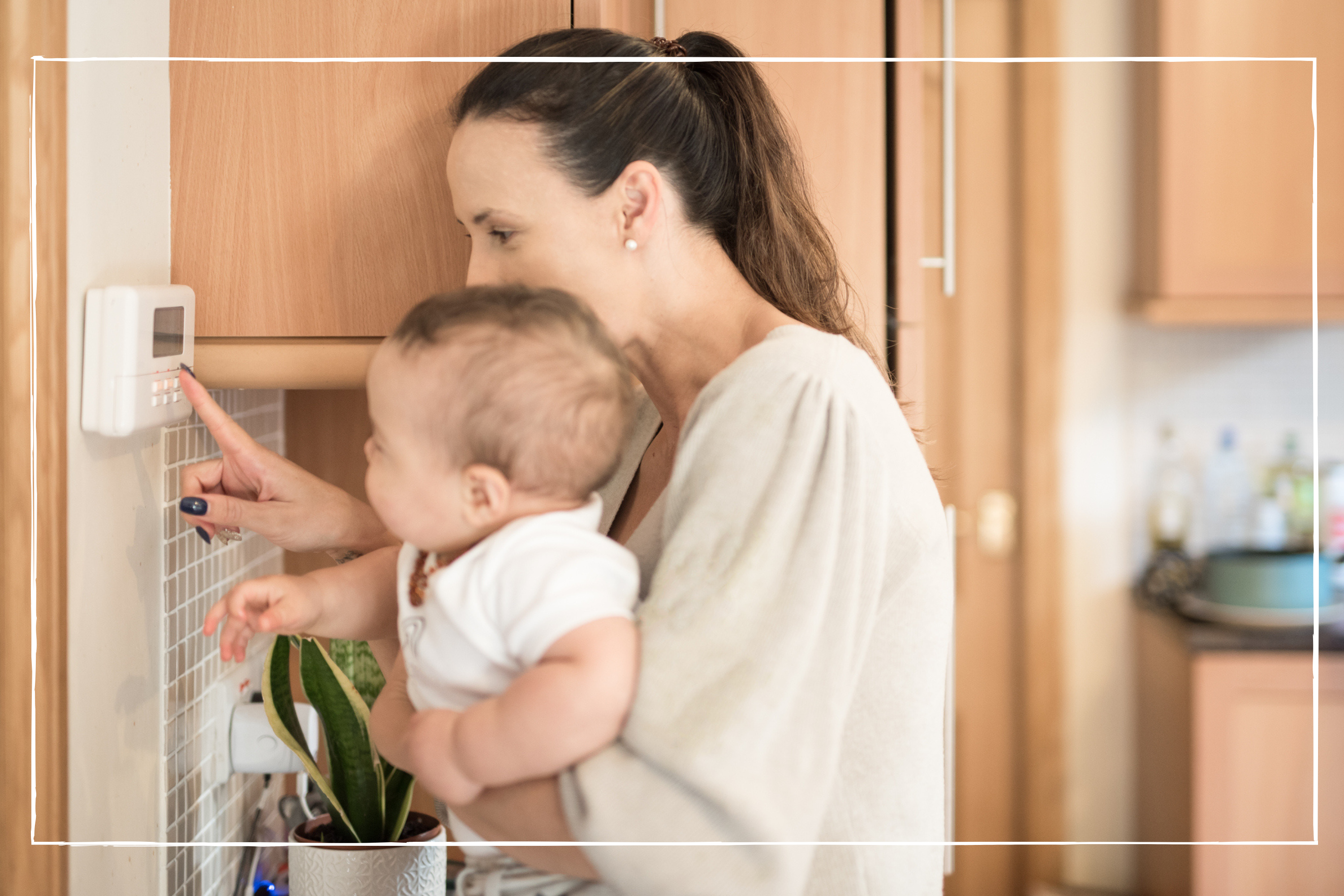5 cheap heating myths that will actually cost you money (plus 3 that really work)
There are loads of tips and tricks to lower heating costs, but these five will actually do more harm to your bank balance than good

With energy prices at an all-time high, there are a number of heating myths doing the rounds. While a lot of these are true, there are a handful of cheap heating myths that will actually end up making your energy bills more expensive rather than cheaper.
The cost of living crisis means our household budgets are tighter than ever before. With heating making up a big proportion of our total energy costs, millions of families are worried about how much their energy bills will cost, even with the Energy Price Guarantee in place. As a result it's never been more important to know how to save energy in homes and take steps to reduce your energy consumption, and embrace cheap ways to keep warm.
Goodto.com's Money Editor Sarah Handley says: "It seems that everyone has an tip on trick on how to reduce your heating bills, but sadly not all of them will be effective, and in the worst case scenarios, they could end up costing you more money instead."
Cheap heating myths that will actually cost you money
Myth 1: Keeping the heating on low all day to save money
This one is a hotly – excuse the pun – contested argument.
There are definite benefits to keeping your heating on low all day. For example, it can help to reduce condensation and dampness in your home. Your home will always be fairly warm too, so you won’t need to crank up the heating the moment you step through the front door. Constant heat will also prevent your pipes from freezing and bursting in winter – everyone’s worst nightmare.
However, leaving your heating on all day won’t save you money. Even with insulation, your home will leak a certain amount of energy every day through draughty doors and windows, and poorly insulated walls and roofs. Keeping your heating on all day means losing energy all day.
Knowledge manager at the Energy Saving Trust, Joanna O’Loan says: “It costs less to set your heating to come on when you need it and just in the rooms that you are using, rather than keeping it on low all day.”
GoodtoKnow Newsletter
Parenting advice, hot topics, best buys and family finance tips delivered straight to your inbox.
Find out how many hours a day should your heating be on and what the ideal temperature is with our helpful guide.
Myth 2: It’s cheaper to use an electric heater instead of central heating to heat one room
If you spend all day in one room – because you work from home, for example, – you might be tempted to switch off the central heating and use an electric heater to heat the room you’re in.
But before you turn yours on, make sure you're aware how much it costs to run an indoor heater. Electric heaters are expensive to run, especially as electricity currently costs about three times the cost of gas (you can expect to pay a maximum of 34p per unit of electricity you use, compared to a maximum of 10.3p per unit of gas). A 2kW heater costs about 68p an hour to run, based on 34p per unit of electricity (the maximum that can be charged under the Energy Price Guarantee). Using this in your home office for eight hours would cost £5.44 a day.
Experts agree that the cheapest way to heat a room is by using an efficient gas central heating system, thermostatic radiator valves, a room thermostat and a timer. If you spend all day in one room, you can turn off the radiators in other rooms. We've also compared the running costs of a gas fire versus central heating to help you make sure you're using the cheapest methods to heat your home.
Myth 3: Painting your radiators black will make them more efficient
This is a common myth based on the premise that black absorbs heat quicker so will transfer heat out at a better rate than white or other coloured radiators.
But the colour of a radiator actually has no effect on how effective it is because the majority of heat emitted is convective. Convection currents are created when the air above your radiator heats and then cools and is then heated again.
Convection isn’t impacted by different colours. However, it is affected by the radiator’s position in the room and what’s around it. Crowding a radiator with furniture will negate its ability to set up a convection current of warm air – so give it some space.
But it might be worth trying this radiator hack that saved our Money Editor more than £30 on her monthly energy bill!
Myth 4: Turning up the thermostat higher will heat your home quicker
Some people turn their thermostat up higher when they want their home to heat up more quickly. But this doesn’t actually work. It won’t heat up your room up more quickly – it will just heat it up to a warmer temperature.
Heating technology expert Jess Steele from BestHeating says: “It doesn’t help to turn the thermostat up high to try and heat a room quicker as this only makes the room warmer at the same speed.
“By the time you turn it off this will only cost money without reward as it will not make a house feel warmer at all and raise bills. Instead, set a timer for the most common periods you need a warm house such as just before you wake up and when you are relaxing in an evening, but turn this off if the weather is a little warmer than usual during the cold spell.”
Myth 5: Heating is cheaper at night
There have been numerous newspaper articles lately which suggest that heating – and other energy – is cheaper at night.
For the majority of households, this isn’t true.
The only scenario where electricity is cheaper at night is if you have Economy 7 or Economy 10 electricity meters. These give you cheaper electricity for seven (or 10) hours a day, usually at night. The idea is you heat up storage heaters in cheap off-peak times and they release the heat gradually during the day.
However, the daytime rates for electricity on these tariffs tends to be very expensive, meaning if you have Economy 7 or Economy 10 meters, you’ll pay more for your energy overall. Also, storage heaters tend to be inefficient and if you release heat too quickly, your home could be cold by the end of the day.
The heating hacks that actually work
Getting an energy efficient boiler
Obviously, installing a new boiler involves major capital outlay but a modern, A-rated condensing boiler will be much cheaper to run than an inefficient boiler that’s 15-years-old or more.
Bleeding your radiators
Radiators containing trapped air are hot at the bottom but cold further up, so they won’t give off as much heat as they should. ‘Bleeding’ them means releasing air trapped inside your heating system.
It's relatively simple to do, and it's something that most people can do on a DIY basis.
Putting clingfilm on your windows
If you’ve got draughty windows or condensation problems, making secondary glazing out of clingfilm can help. The clingfilm traps a layer of air which stops heat escaping.
You might also be interested in these expert tips on how to stop condensation on windows.

Emma Lunn is a multi-award-winning journalist who specialises in personal finance and consumer issues. With more than 18 years of experience in personal finance, Emma has covered topics including all aspects of energy - from the energy price cap to prepayment meter tricks, as well as mortgages, banking, debt, budgeting, broadband, pensions and investments. Emma’s one of the most prolific freelance personal finance journalists with a back catalogue of work in newspapers such as The Guardian, The Independent, The Daily Telegraph, the Mail on Sunday and the Mirror.
-
 How to save money: 28 family-friendly money-saving tips for mums and dads
How to save money: 28 family-friendly money-saving tips for mums and dadsUnderstanding how to save money is key to limiting the impact of rising costs as much as possible
By Sarah Handley
-
 14 hidden benefits of your Amazon Prime membership
14 hidden benefits of your Amazon Prime membershipWe reveal the less-obvious perks of a Prime membership that will help you get the most value out of your subscription fee
By Rachel Wait
-
 14 surprising ways to spend your Tesco Clubcard vouchers - from restaurants and cinema passes to mini breaks and Disney+
14 surprising ways to spend your Tesco Clubcard vouchers - from restaurants and cinema passes to mini breaks and Disney+Tesco Clubcard vouchers can help you cut the cost of everything from groceries and travel to days out and cinema tickets
By Heidi Scrimgeour
-
 How to get Disney+ for free and save up to £79.90 a year
How to get Disney+ for free and save up to £79.90 a yearEven though the streaming giant ended its free trial offering, there are still multiple ways you can get Disney+ for free for up to 12 months
By Sarah Handley
-
 Parents of teens who have just taken their GCSEs urged to check child benefit status ahead of August deadline
Parents of teens who have just taken their GCSEs urged to check child benefit status ahead of August deadlineWith a child benefit deadline looming, some parents could see their payments reduced or stopped altogether - here's why
By Sarah Handley
-
 Parents should hold off buying this back to school staple 'as close to their first day as possible', says retailer
Parents should hold off buying this back to school staple 'as close to their first day as possible', says retailerWith parents turning their attention to kitting their kids out for the new school year, research suggestions which items should be left until the last minute
By Sarah Handley
-
 7 ways to save on back to school essentials, as its revealed parents will spend £2.3 billion in 2024
7 ways to save on back to school essentials, as its revealed parents will spend £2.3 billion in 2024We share ways you can get your child all the bits and bobs they need for the new school year, without breaking the bank
By Sarah Handley
-
 What day is child benefit paid around the bank holiday? Everything parents need to know
What day is child benefit paid around the bank holiday? Everything parents need to knowKnowing which day child benefit is paid when it comes to the bank holiday can help families plan their budgets accordingly
By Sarah Handley